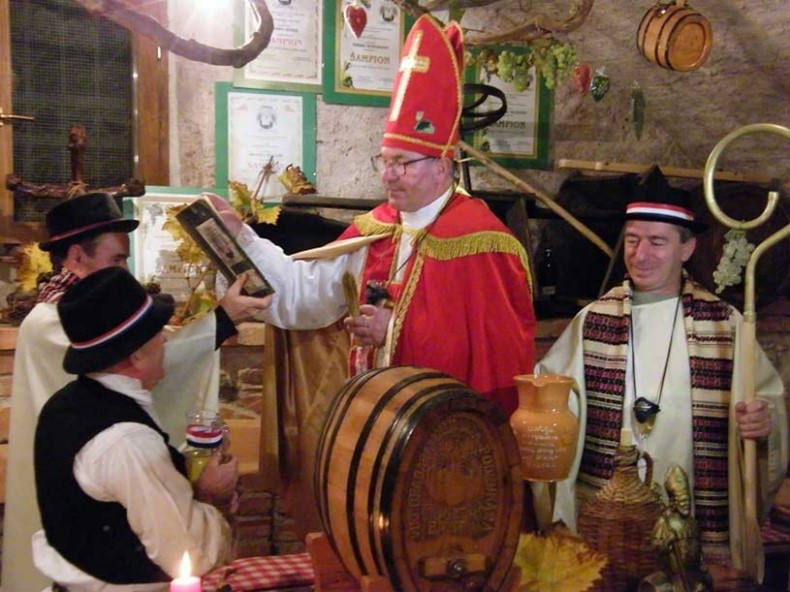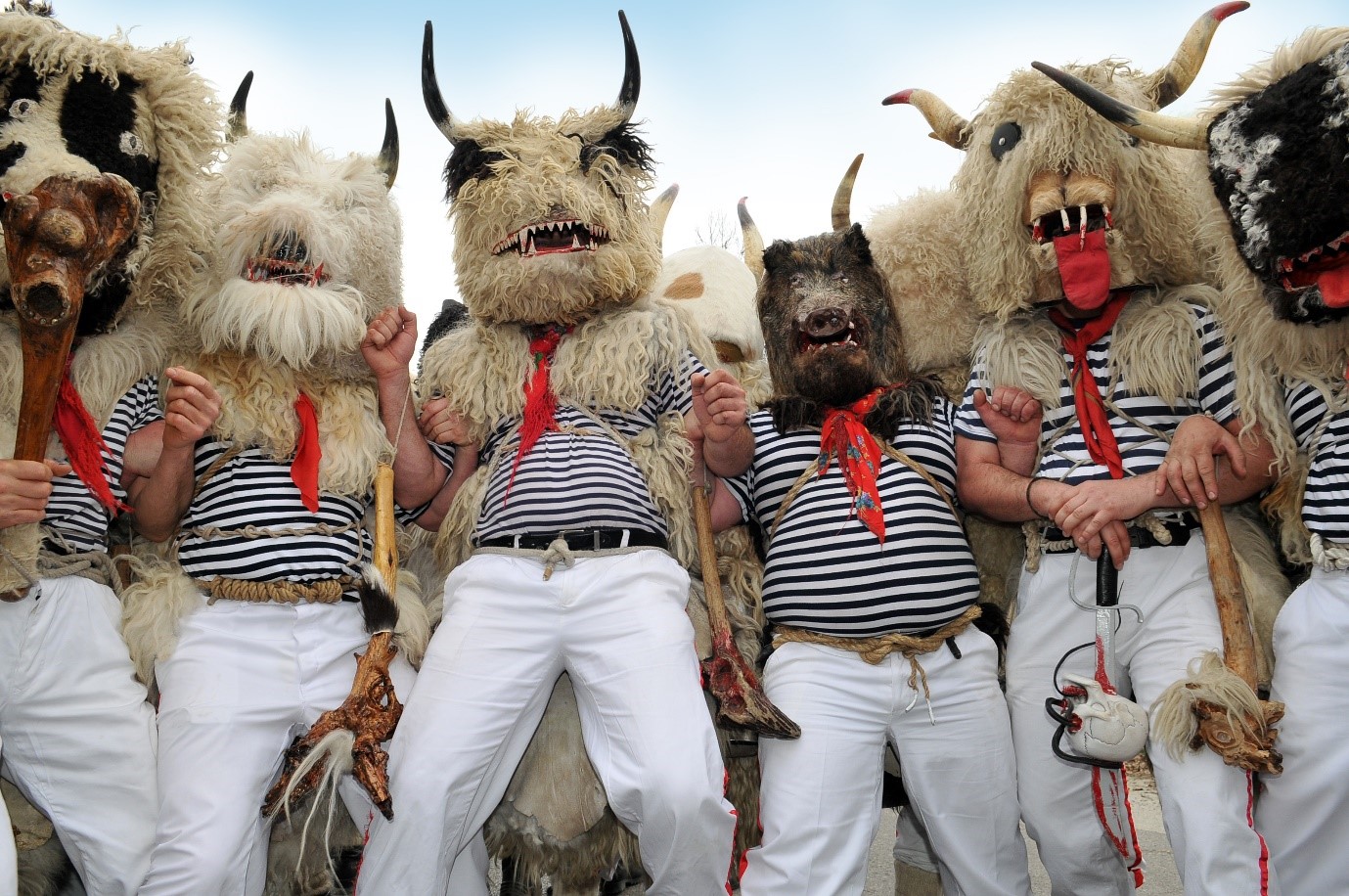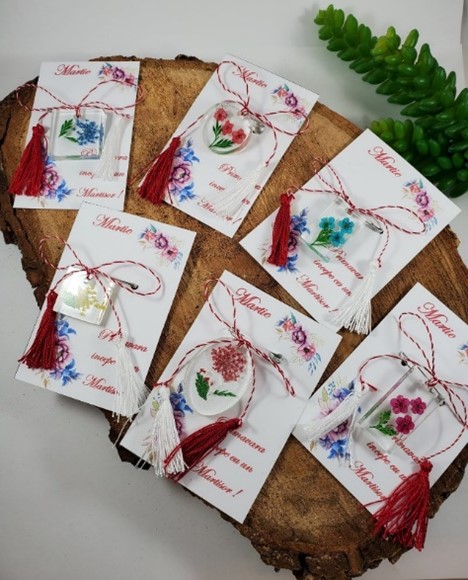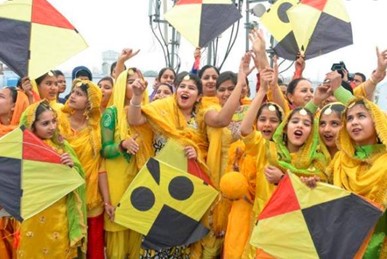The Diverse Cultures of Modis Life Sciences
Posted 26 February 2021At Modis Life Sciences, we celebrated International Mother Language Day on Sunday 21 February. With a diverse team of 30 nationalities, we collectively speak more than 30 languages in our community. Linguistic diversity is vital as it carries with it rich cultures and meaningful heritages. To keep in line with our values of our employees being at the center of our organization, we interviewed 10 colleagues on their mother languages and cultures.
Sofia from Argentina
Mother language : Spanish (español)
“Hello” in your mother language : Hola
“Life sciences” in your mother language : Ciencias Vivas
Famous/common saying : “Che” is a word commonly used throughout Argentina. It became famous because of the influential Argentinian revolutionary Ernesto ‘Che’ Guevara, who was nicknamed “Che” because of his frequent use of the word. The term can be used in different ways. The most common translation is “hey”, but it is often used for « man », « buddy » and « so » as well. If you visit Argentina, don’t be suprised to hear a phrase such as “¡Hola, che! ¿Cómo te va?” which means “Hey, man! How’s it going?”.
Interesting tradition : Dia de los Ñoquis (Day of Gnocchi)
Traditionally in Argentina, people would get paid on the first of every month, which would leave people in a financially tight situation by the end of the month. Potatoes and flour would usually be the only ingredients available in the household, which made Gnocchi the ideal meal to cook because it is both filling and inexpensive. Now, on the 29th of every month, Argentineans eat gnocchi. On this day, some families also put money under the dinner plates for good luck and fortune.
Adna from Bosnia and Herzegovina
Mother language : Bosnian
“Hello” in your mother language : Zdravo
“Life sciences” in your mother language : Prirodne nauke
Famous/common saying : “K’o bubreg u loju” literally translates to “like a kidney in a suit”. It is used when you want to say that someone is wealthy, well-protected and fortunate in all crucial areas of life, thus the comparison to a kidney that is a crucial part of the body.
Interesting tradition: Coffee Drinking
You may be wondering why drinking coffee is considered a fascinating tradition, because it seems to be part of most of our daily routines. However, in Bosnia, drinking coffee is more than just a quick stop-and-go, it is closer to a ritual. Almost everyone seems to drink the exact same coffee, a traditional strong Bosnian coffee. And when picking up your coffee on the way to work, it is considered a social event. All phones are put to the side, and it becomes a moment of verbal communication and therapy for many. That is why you hardly see people sitting on their own in a café, because it is about more than just the drink.
Ivana from Croatia
Mother language : Croatian
“Hello” in your mother language : Bok! (informal) or Dobar dan! (More formal way to say good day)
“Life sciences” in your mother language : Znanost
Famous/common saying : « Tresla se brda, rodio se miš » is a saying that became popular after recent earthquakes in Croatia. It is literally translated to “hills were shaking, a mouse was born”, but refers to people making a big deal out of a minor issue. The English equivalent to this phrase would be ‘making a mountain out of a molehill’.
Interesting tradition : Martinje & Fašnik/Maškare
Religion is extremely important in Croatia, and most traditions in the country stem from it. In the North of Croatia, Martinje, which is the holy day of wine, is celebrated yearly on 11 November. On this day, winemakers and their friends give thanks to St. Martin for having a good harvest and the day also marks the moment young wine matures into wine fit for drinking. This celebration is part of the Register of Protected Croatian Cultural Intangible Heritage.
In the South of Croatia, the carnival period (Fašnik/Maškare) is celebrated, and people dress up in various costumes and masks that personify all ugly and devilish things. They are later burnt at the end of the carnival as a representation of leaving behind the bad from the previous year and starting afresh. The most popular mask is that of Zvončari. With this masks on (and bells around the waist), the aim is to be as loud and scary as possible to scare the devil away.

A priest blessing wine on Martinje. Source: https://bistra.hr/najava-martinje-po-bistrajnski/

People wearing masks for Fašnik/Maškare. Source: http://www.diplomacyandcommerce.rs/dc-at-the-37th-carnival-in-rijeka-rijekas-tito-and-jovanka-mourn-the-seagull/
Anne from Germany
Mother language : German
“Hello” in your mother language : Hallo
“Life sciences” in your mother language : Biowissenschaften
Famous/common saying : We all have moments where someone is talking to you, and you are struggling to understand what they mean – no matter how hard you try. A common German phrase you can use to let them know you are not getting it is “Ich verstehe nur Bahnhof”. It is the German way of saying “It’s all Greek to me”.
Interesting tradition : Traditionally, the start to the warmer seasons are celebrated on 1 May. Parties are organized from 30 April to 1 May, and in some regions, men use the night to decorate birch trees for the women they are (secretly) in love with. The trees are placed in front of the woman’s house and are left there for the whole month of May.
Omid from Iran
Mother language : Persian
“Hello” in your mother language : سلام
“Life sciences” in your mother language : علوم زیستی
Famous/common saying : « موش تو سوراخ نمیرفت، جارو به دمش بستن » translates to « The mouse couldn’t get into his hole and they attached a broom to his tail ». It is used in situations where someone is already finding it hard to complete a task or do something, and then another burden is added to it.
Interesting tradition : At the start of Spring (usually 21 March), the Iranian New Year is celebrated. This is a time when families from all across the globe reunite and spend some quality time together. This time of year is traditionally used as an opportunity for family members to also reconcile and clear up any differences or problems they have experienced.
Kerlin from the Democratic Republic of the Congo (DRC)
Mother language : Lingala “Hello” in your mother language : Mbote “Life sciences” in your mother language : Nzebi wa bomoyi Famous/common saying : “Muana mukie pe abetaka mbunda, bakolo pe ba binaka” is a phrase that says the youth is capable of leading elders to a certain way of life. This means that just as younger people learn from the experiences of the elderly, elders can also learn from the experiences of the youth. Interesting tradition : There is a funny Congolese tradition when it’s raining, where the youngest member of the family is sent outside with a broom to sweep the floor. After doing this, he/she must throw a few pinches of salt onto the roof to make the rain stop.Oana from Romania
Mother language : Romanian
“Hello” in your mother language : Buna ziua
“Life sciences” in your mother language : Stiinta vietii
Famous/common saying : “Cine se trezeste de dimineata, departe ajunge” literally translates into « The one who wakes up early, gets far ». This is the Romanian equivalent to the English saying « the early bird gets the worm ».
Interesting tradition : Martisor
A Romanian tradition that we are sure women all over the world would appreciate is Martisor (named after the month in which it takes place). Every year on 1 March, the men of Romania give the women in their lives small gifts as a representation of spring, life and good luck. These gifts can be anything from brooches and bracelets to small figurines of ladybugs, four leaf clovers, horse shoes or chimney sweeps, which are all symbols of good luck. One common element you will see on all the gifts is a red and white string.

Traditional brooches for Martisor. Source: https://i.etsystatic.com/20149107/r/il/815172/2875662040/il_1140xN.2875662040_oj1u.jpg
Laura from Spain
Mother language : Spanish
“Hello” in your mother language : Hola
“Life sciences” in your mother language : Ciencias de la vida
Famous/common saying : “El que mucho abarca, poco aprieta” which literally translates into « If you try to get your arms around too much, you will not be able to squeeze ». This means to say that you shouldn’t spread yourself too thin.
Interesting tradition : In Spain, Christmas officially ends on 6 January, which is 3 Kings Day. If children leave out a clean shoe under the Christmas tree, they receive gifts that they believe are brought to them by the Orient. However, the children only get gifts if they have been good throughout the year, otherwise they get coal. This is a celebration for adults as well, as families gather on 3 Kings Day for extensive lunches and to exchange gifts “brought to them by the Kings”. A traditional cake eaten on this day is Roscón de Reyes, in which there are always two hidden cermaic figures: a king and a bean. The one who finds the king becomes king of the table, and the one that finds the bean has to buy the cake the following year.
Yasemin from Turkey
Mother language : Turkish
“Hello” in your mother language : Merhaba
“Life sciences” in your mother language : Yaşam Bilimi
Famous/common saying : When someone is so happy that you can see it in all their expressions and actions, in Turkish you say ''Ağzı kulaklarına varmak'' which directly translates to « To grin from mouth to ears ».
Interesting tradition : Most Turkish people believe in fortune telling, but with a small twist - coffee. They believe that someone’s future can be told by looking at the residue of your Turkish coffee grounds left in your cup. If you see the shape of a bird, for example, it symbolizes receiving good news. It is such an important tradition that there are even people who have trained in this practice, and are paid for their readings. Additionally, there are now also apps that allow you to send a picture of your coffee cup and receive comments back in 30 minutes.
Ahmad from Pakistan
Mother language : اردو (Urdu)
“Hello” in your mother language : آداب (Aadaab)
“Life sciences” in your mother language : حیاتی سائنس (Hayat -i Science)
Famous/common saying : « کر بھلا سو ہو بھلا » (pronounced « Ker Bhala so ho bhala ») is a famous phrase that transcends between languages and cultures. It says « do good and have good », which means that if you do good things for other, in your life, you will get good things in return.
Interesting tradition : Basant (بسنت), pronounced “Bassent”, is a summer festival that celebrates the end of the winter period. It highlights that a new time has started (summer), which is a beneficial season for crops and food. Different kites are flown to celebrate this season, and families eat and sing whilst doing this. It really is a joyous time.

Young girls holding kites and celebrating Basant. Source: https://www.hindustantimes.com/punjab/basant-in-its-splendour/story-K0pwoa4CqqKm910kp3fuaM.html